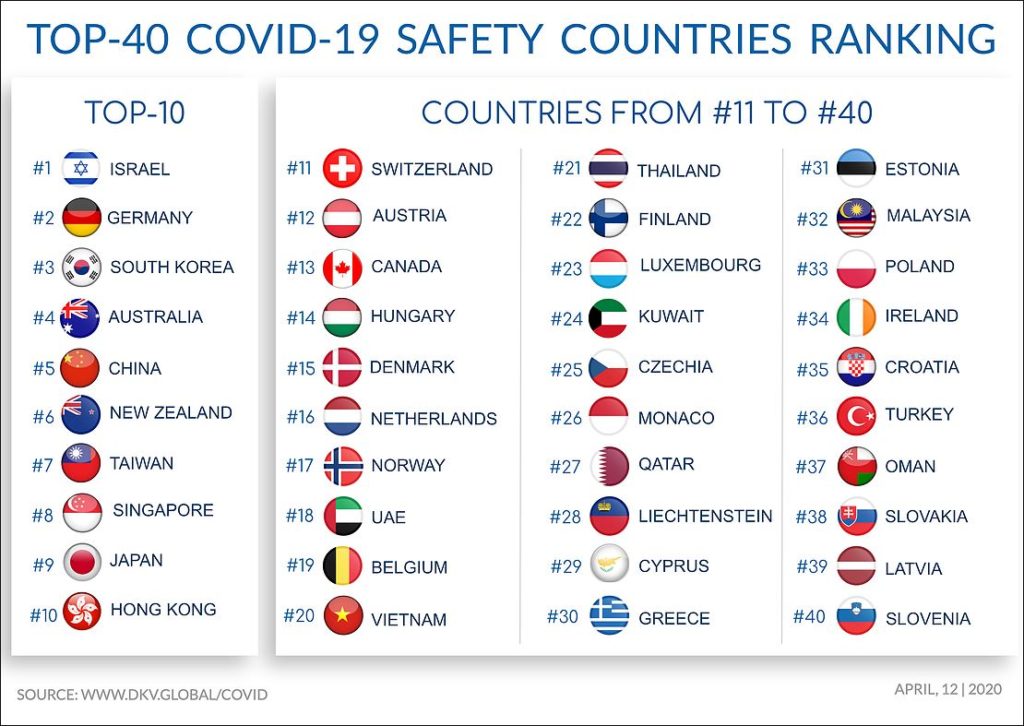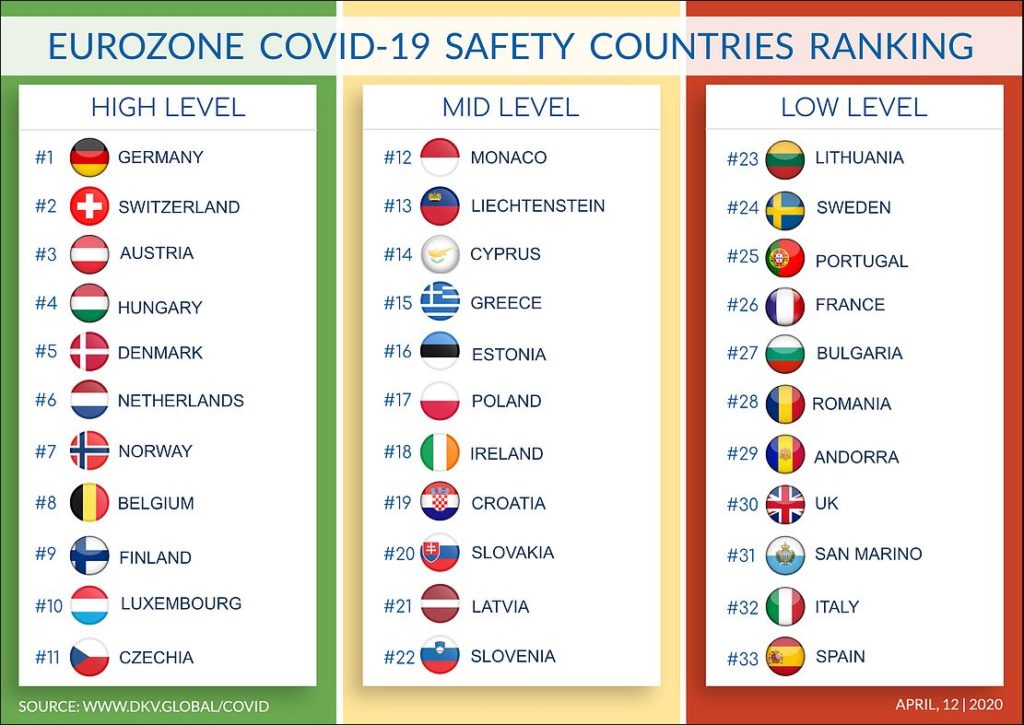The survey, by the Deep Knowledge Group, a consortium of technology companies and non-profit organizations, considered 200 data points for each country to compile the list, which placed Germany, China, South Korea, Austria, and Hong Kong in the top five.
Next was Singapore, Taiwan, Israel, and Japan, with the Czech Republic in 11th place.
Deep Knowledge Group adapted its existing analytical frameworks, previously applied to complex domains such as as AI for Drug Discovery and NeuroTech, to the global COVID-19 pandemic landscape. A team of experts collected and analyzed data generated for 200 countries around the world.
The ‘Covid-19 Treatment Efficiency Ranking Framework’ assesses countries based on the sophistication and effectiveness of efforts to monitor the spread of the virus, treatment of patients, in addition to the capacity to develop, test, validate and deploy experimental vaccines and treatments.
Unfortunately, some of the riskiest countries are also from Europe. In the “COVID-19 Risk Ranking Framework” Italy ranked first, the US second, while the UK was ranked third.
The data came from sources including the World Health Organisation, Johns Hopkins University, in addition to overall economic and technological development.
There have now been more than 2 million confirmed cases across the world and upwards of 134,000 deaths.

Eurozone Safety / Risk Ranking
The COVID-19 Eurozone Safety / Risk Ranking Framework was designed specifically for the unique circumstances present in Europe. Special attention was applied to the unique characteristics of Europe including highly interconnected economies, high levels of supply-chain, tourist flow, and the incidence of critical hotspots.

Remdesivir has been just approved in the Czech Republic to be used in some COVID19 cases by the Czech State Institute for Drug Control (signature form Minister of health is pending and expected soon).
Remdesivir is now being tested in five Covid-19 clinical trials that have been set up at breakneck speed. It’s been delivered through a compassionate use program to some patients, including the first case in the United States. The first trial results are expected next month, though some analysts have already raised concerns about the prospects based on the drips of data emerging from a small number of patients.
Remdesivir cripples an enzyme called RNA polymerase that is used by many viruses to copy themselves; it does not specifically target SARS-CoV-2, the virus that causes COVID-19. But it worked well in a test tube and animal studies of human coronaviruses, cousins of SARS-CoV-2 called severe acute respiratory syndrome and the Middle East respiratory syndrome, that cause similar respiratory conditions.
Others’ hopes are high for the drug. As of now, there are no approved therapies for any coronavirus infection, and Remdesivir is the farthest along in the development process of any candidate.
“There’s only one drug right now that we think may have real efficacy,” Bruce Aylward of the World Health Organization said last month. “ And that’s Remdesivir.
The number of confirmed coronavirus cases in the Czech Republic reached 434 on Tuesday evening.
Three patients are in “very serious to critical condition” according to the Health Ministry. Half of the positive patients were infected abroad, the others in the Czech Republic.
Over 6,300 tests have been conducted to date. Three people have fully recovered from COVID-19.
Around 170,000 people across the globe have now been infected with the coronavirus and over 6,500 have died.
After China managed to get a handle on its sudden outbreak other countries were blindsided by huge epidemics – almost 25,000 people have caught it in Italy, around 14,000 in Iran, 8,000 in Spain and more than 5,000 apiece in Germany and France.

